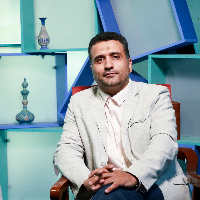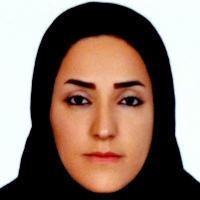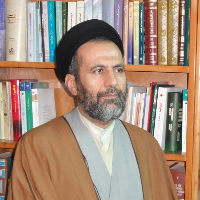مقالات رزومه دکتر حمیدرضا یونسی
-
مفهوم قرآنی ایثار در مقایسه بین دو نظم اجتماعی سنتی و مدرن بیان شده از سوی چلبی، کارکردهای مختلفی دارد. ایثار در جامعه سنتی در بخش روابط مبادله نامتقارن گرم و بعد مجموعه تعاملی قرار می گیرد و کارکرد آن همان مفهوم قرآنی که حول معنای «برتری دادن» است، می باشد، اما در دستگاه مختصات نظم اجتماعی مدرن، کارکردی در سطح هنجار اخلاقی و مسیولیت در قبال جامعه و افراد در بعد هنجاری آن دارد.
کلید واژگان: ایثار, برتری دادن, چلبی, نظم اجتماعی سنتی, نظم اجتماعی مدرن}The Quranic concept of self-sacrifice has different functions in the comparison between the two traditional and modern social orders expressed by Chalabi. In traditional society, self-sacrifice is placed in the section of warm asymmetric exchange relations and in the dimension of interactive set, and its function is the same as the Qur'anic concept that revolves around the meaning of "preference". But in the coordinate system of modern social order, it has a function at the level of moral norm and responsibility towards society and individuals in its normative dimension.
Keywords: Self-Sacrifice, Preference, Chalabi, Traditional Social Order, Modern Social Order} -
پژوهش حاضر با هدف طراحی الگویی برای شایستگی های مدیران هییت های مذهبی به روش کیفی انجام شد و برای دستیابی به هدف از سه روش کیفی مشاهده، مصاحبه و مدیریت تعاملی (IM) استفاده شده است. جامعه آماری در هرکدام از روش های پژوهش متفاوت بوده است. در بخش مشاهده جامعه آماری شامل هییت های شاخص، در بخش مصاحبه و مدیریت تعاملی شامل کارشناسان مدیریتی، مسایل اجتماعی، روان شناسی و مسیولان هییت های نمونه بوده است. متناسب با روش های پژوهش استفاده شده، روش نمونه گیری نیز متفاوت بوده است. روش نمونه گیری در بخش مشاهده به صورت در دسترس بوده و با در نظر گرفتن محدودیت های پژوهش و ملاک های انتخاب از بین 11 هییت، 5 مورد انتخاب شد؛ و در مصاحبه به صورت هدفمند و جمع آوری داده تا آنجایی ادامه یافت که اشباع نظری حاصل و در نهایت 9 مصاحبه انجام شد. در نهایت، در قسمت مدیریت تعاملی نیز نمونه شامل 5 نفر از افراد مصاحبه شده در مرحله قبل بود که به صورت هدفمند انتخاب شدند. روش تجزیه وتحلیل در بخش مصاحبه و مشاهده پس از پیاده سازی متن آن ها به روش کدگذاری و با استفاده از نرم افزار Maxqda انجام شد. در روش مدیریت تعاملی مبنای پیشنهادی محقق که حاصل دو بخش قبل بود به بحث گزارده، پس از اصلاح و تایید متخصصان و رسیدن به اجماع نهایی، الگوی شماتیک شایستگی با نشان دادن روابط علی و معلولی با استفاده از نرم افزار ISM ترسیم شد. نتایج نشان داد که به ترتیب داشتن هنر مدیریت، شناخت مسایل دینی، اخلاق مداری، جاذبه قوی و دافعه مطلوب در روابط عمومی و داشتن سواد رسانه ای از مهم ترین شایستگی های یک مدیر هییت مذهبی هستند.کلید واژگان: الگو, شایستگی, مدیران, هیئت مذهبی}The purpose of this study is to design a model for the competencies of religious Hay’at boards. In terms of methodology, we use a qualitative research, which uses three methods of observation, semi-structured interview and interactive management (IM) method, to achieve the goals. The statistical population of the study was examined in the section on observation of sample boards of sample and in the interview included management experts, social issues, psychology and boards of sample Hay’ats. The sampling method in the observation section was made available by considering the limitations of the research and the selection criteria from 11 cases to 5 delegates. The sampling method in the interview was purposeful, and the sampling process continued until the theoretical saturation was achieved. Finally, 9 people from the community were studied. In the interactive management section, sampling from the interviewees was done purposefully and five people with relevant experience in the field were selected. The method of data analysis in interview after coding the interviews and observation forms was done by coding method using Maxqda software and in the interactive management method the researcher suggested two sections before and after modification. Experts' approval and reaching a final consensus on the competency model was drawn using ISM software. Findings from the recognition of managerial competencies showed that having the art of management, knowledge of religious issues, orthodox ethics, strong attraction and favorable public relations and media literacy are the most important competencies of a religious director and ultimately causal relationships. Their disability is plotted.Keywords: Pattern, competence, Managers, Religious Board}
-
تطبیق نظریه تفسیری پل ریکور و وضع الفاظ برای ارواح معانی ملاصدرا گویای آن است که دو اندیشمند علی رغم اشتراک های لفظی فی مابین دیدگاه ها از نظر معنایی چندان همسو نبوده و تمرکز پل ریکور بر مادی گرایی و ملاصدرا بر ماوراءالطبیعه سبب شده تا پل ریکور جهان را همین جهان ماده فرض کند در حالی که ملاصدرا مراتب لایتناهی را برای جهان متصور است و این امر سبب شده تا ریکور در حوزه روش به پدیدارشناسی هرمنوتیک توجه کند و ملاصدرا در چارچوب متافیزیک سنتی پیش رود در نتیجه ریکور در پی کشف مراد مولف نبوده اما ملاصدرا به دنبال کشف مراد مولف است تا فهم خود را به بالاترین مرتبه نظام لایتناهی هستی نزدیک کند و این خود پل ریکور را در زمره قایلان به نسبی گرایی در فهم متن و ملاصدرا را موافقان عدم نسبی گرایی در فهم متن سوق می دهد.
کلید واژگان: نظریه تفسیر, پل ریکور, ملاصدرا, وضع لفظ برای ارواح معانی, زبان قرآن}A Comparison of Paul Ricoeurchr('39')s theory of interpretation and Mulla Sadrachr('39')s coining words for the spirits of meanings reveals that, despite some similarities in their language, these two thinkers are not semantically aligned. Ricoeur’s focus on materialism and Mulla Sadra’s concentration on metaphysics have led Ricoeur to believe that the universe is limited to what we are experiencing now while Mulla Sadra envisions infinite levels and modes for the universe, and this, in turn, has led Ricoeur to be focused on hermeneutic phenomenology in the field of method and Mulla Sadra to advance within the framework of traditional metaphysics. As a result, Ricoeur does not aim to discover the intent of the author, but Mulla Sadra intends to find out the intention of the author to make his understanding closer to the highest level of the infinite system of existence. Due to this very idea, Paul Ricoeur is said to be among those who believe in relativism in understanding the text, and Mulla Sadra is believed to be in favor of non-relativism in understanding the text.
Keywords: interpretation theory, Paul Ricoeur, Mulla Sadra, coining words for the spirits of meanings, the language of the Quran} -
احادیث، سه گانه ای از اثبات تا نفی اسماء و صفات را بیان کرده که در طول تاریخ محل نزاع و پدیدار شدن مکاتب مختلف کلامی، فلسفی و عرفانی شده است و از الهیات سلبی تا الهیات ایجابی را در بر گرفته است؛ این پژوهش با تمرکز بر روایات اسماء و صفات، خاصه روایات حدوث اسماء و استخراج مبانی عقلی از این روایات، تیوری «وجه امکانی واجب الوجود» را پردازش کرده و آن را معیاری برای تبیین و وجه الجمع اختلاف نظرات در حیطه الهیات سلبی و ایجابی قرار داده است.
کلید واژگان: اسماء, صفات, حدوث اسماء, وجه امکانی واجب الوجود, الهیات سلبی, الهیات ایجابی}Hadith Studies, Volume:13 Issue: 25, 2021, PP 213 -228Hadiths have expressed trinary stances on Asma and Sifat, ranging from proving them to denying them, creating disputes and leading to emergence of various theological, philosophical and theosophical schools and covering fields from negative theology to affirmative theology. This research, focusing on Hadiths about Asma and Sifat, especially those about Hoduth (coming into existence) of Asma, and deriving rational foundations from those Hadiths, has processed the theory of “Locality Aspect of Wajib al-Wujud” and made it a criterion for clarification and ‘Wajhul Jam’ of differences of views in the realm of negative and affirmative theology.
Keywords: Asma, Sifat, Hoduth of Asma, Locality Aspect of Wajib al-Wujud, Negative Theology, Affirmative Theology} -
پژوهش حاضر ضمن بیان تعریفی مختصر از اسم و صفت، به بیان وجوه دلالت اسماء و صفات خداوند متعال بطور اجمال در مکاتب مختلف پرداخته و به این مساله توجه داده است که در کلام معصومین علیهم السلام اسماء و صفات خداوند دلالت بر چه چیزی دارند و ضمن دسته بندی این روایات، بر قاعده مهم اسم الله غیره تاکید نموده و با استفاده از آن بیان نموده که دلالت اسماء و صفات الله بر غیر خدا است.
کلید واژگان: اسم, صفت, موصوف, دلالت, الله, معصومین}The present study, while giving a short explanation of the words ‘name’ and ‘attribute’, briefly explicates the meanings of the names and attributes of God, Almighty from the perspective of various schools of thought and highlights the point that, in the words of the infallibles, the names and attributes of God denote some realities other than God. Categorizing the narrations in question, the article further underlines the important principle that asma’ Allah (divine names) signify entities other than Allah, and relying on this principle, it demonstrates that the names and attributes of Allah refer to non-God realities.
Keywords: name, attribute, mosuf (a noun qualified by an adjective), signification, Allah, the infallibles} -
خطاپذیری دانش بشر، ماهیت مکمل سازی و چندتباری بودن دانش نیاز به مطالعات میان رشته ای در علوم انسانی را ایجاب می کند؛ در این میان، دانش قرآنی با مطالعه در دو شاخه علوم قرآنی (به طور خاص) و معارف قرآنی در حوزه مطالعات میان رشته ای قرار می گیرد؛ و از سوی دیگر تربیت و مفاهیم مرتبط با آن در بحث علوم تربیتی در رشته های دانشگاهی جای می گیرد. در این راستا و با توجه به اهمیت این مطالعات، مقاله حاضر با هدف شناسایی زمینه های پژوهشی در حوزه مطالعات میان رشته ای در دو دانش معارف قرآنی و علوم تربیتی تدوین شده است. روش انجام این پژوهش از نظر روش شناسی کیفی و با استفاده از مطالعات کتابخانه ای و اسنادی انجام شده است. جامعه آماری شامل منابع کتابخانه ای و اسناد مرتبط بوده است. برای رسیدن به هدف پژوهش از معیارهای اندازه گیری و وزن های شناسایی شده توسط فیضی و نقی زاده (1395) استفاده شده است. بدین وسیله محقق با استفاده از این معیارها به بررسی منابع اطلاعاتی هر یک از وزن ها در رشته های علوم تربیتی و معارف قرآنی پرداخته است؛ نتایج به دست آمده نشان می دهد علوم تربیتی در آموزش غیر رسمی نیاز به پژوهش بیشتری دارد و در دانش قرآنی، میزان پژوهش در شاخه معارف قرآنی بالاتر است. همچنین امکان پژوهش قرآنی در هر سه نوع آموزش وجود دارد، اما در رشته آموزش غیر رسمی بیشترین وزن را به خود اختصاص داده است.کلید واژگان: معارف قرآنی, علوم تربیتی, میان رشته ای, آموزش غیر رسمی}The fallibility of human knowledge, nature of supplementation and hybridity of science necessitate interdisciplinary studies in humanities. Quranic knowledge, studying the two branches of Quranic sciences (in particular) and Quranic teachings, is included in the field of interdisciplinary studies. On the other hand, educational and related concepts in educational sciences are part of academic fields. Hence, given the significance of such studies, this paper has been written with the aim of identifying research areas for interdisciplinary studies in the two fields of Quranic knowledge and educational sciences. This study, which is a library research, has been conducted using the descriptive method. The statistical society of the research comprises library resources and related documents. In order to achieve the objective of the research, measurement criteria and weights identified by Feizi and Naqizadeh have been used. Using these, the researcher has analyzed data sources of each of the weights in the fields of educational sciences and Quranic teachings. Findings show a need for more studies on educational sciences in informal education. Also, in Quranic knowledge, the amount of research is higher in the branch of Quranic teachings. Moreover, Quranic research is possible in all three kinds of education but it has the most weight in informal education.Keywords: Quranic Teachings, Educational Sciences, Interdisciplinary, Informal Education}
-
پژوهش حاضر با تاکید بر واژه انذار در قرآن کریم و ارائه تبیینی از معنای لغوی و احصای خصوصیات معنایی این واژه در کاربرد قرآنی تعریفی جامع از این واژه ارائه داده تا جایگاه این مفهوم در کاربرد تربیتی آن را از قواره یک «روش تربیتی» به میزان یک «اصل تربیتی» ارتقاء دهد.کلید واژگان: انذار, اصل, روش, تربیت, مربی, متربی}Underlining the word enzar in the Holy Quran, providing an explanation of the lexical meaning of this term, and exploring its semantic features in Quranic applications, the present research work presents a comprehensive definition of this term to promote the status of this concept in its training application from a training method to a training principle.Keywords: enzar (warning), principle, method, training, trainer, trainee}
-
پژوهش حاضر با استناد به روایات منقول در منابع شیعه به اثبات نظریه «نزول لفظی و معنوی قرآن کریم» توامان از سوی خداوند متعال پرداخته، و با استناد به تاکید روایات بر نزول قرآن کریم به زبانی(لغتی) خاص و بیان دو لفظ «آیه و معنا» درباره نزول قرآن، و وجود محکمات و متشابهات در آیات و نیز نسبت انزال قرآن کریم به خداوند متعال اثبات می کند که پیامبر اکرم هیچ دخل و تصرفی در نزول آیات و ابلاغ آن به مردم هم در مقام لفظ و هم در مقام معنا نداشته است. نویسندگان مقاله با طرح این مباحث به نقد و رد نظریه دکتر سروش در باب کیفیت نزول قرآن از دیدگاه روایات پرداخته اند.
کلید واژگان: قرآن کریم, نزول لفظی و نزول معنوی, دکتر سروش, کیفیت نزول, نقد نظریه}This article is an attempt to support the theory of “the verbal and spiritual revelation of the holy Quran” simultaneously by Allah the Exalted on the basis of the traditions narrated in Shiite sources. Moreover, on the basis of the stress traditions put on the revelation of the holy Quran in a special language and explaining the two terms “verse and meaning” in regard of the revelation of the Quran, the existence of the clear and ambiguous verses, and also attributing the revelation of the Quran to the Exalted Allah it is argued that the holy Prophet, peace be upon him and his household, had no verbal or spiritual intervention with the revelation of the verses or their announcement to people. -
در این پژوهش معنای دقیقی از واژه یقطین، موقعیت جغرافیایی یونس نبی(ع)، بیماری های عارض شده بر وی و تاثیرات دارویی گیاه یقطین بر این امراض بررسی شده است. کلمه یقطین نام خانواده ای از گیاهان به نام کدوبن است که خواص دارویی قابل توجهی دارد و با توجه به بیماری های عارض شده بر یونس نبی(ع) که عبارتند از: تحلیل عضلات، ریزش مو و از بین رفتن پوست، تاثیرات آن گیاه بر روی چنین امراضی مورد توجه قرار گرفته است.
از میان خانواده این گیاه، کدوی قلیانی بیشترین تاثیر همخوانی را با این امراض دارد. علاوه بر این موقعیت جغرافیایی یونس نبی(ع)؛ یعنی ساحل یافا در دریای مدیترانه نیز موید تاثیرات دارویی همین گیاه است.
کلید واژگان: یقطین, یونس, کدوبن, کدوی قلیانی}Objectiv (s): Jonah is ordered by God to city of Nineveh to preach. He boards at a boat. However، the craft was soon overtaken by a squall، for which Jonah admitted responsibility and persuaded the crew of the boat to throw him overboard. He was then vomited out on the shoreline. A fast-growing plant had provided him with much needed shade. The Hebrew name for the fast-growing plant that provided relief for Jonah is qiqayon and translated into English as gourd. In the Quran، the plant at Nineveh is identified as yaqtin. The nature of this plant is not well understand.MethodsThe method used for this research is descriptive-analytical.Conclusion1-The yaqtin is identified with Lagenaria siceraria. 2-The identification of the Hebrew qiqayon as Ricinus communis، Arabic kharua’، is not accepted in Islamic tradition. -
پژوهش حاضر با تکیه بر تفسیر المیزان به ارائه انواع تعریف از اخلاق و نیز تهذیب نفس در نگاه علامه طباطبائی پرداخته و با تاکید بر اصل توحید محوری در اخلاق، اثبات کرده است که نظام اخلاقی توحیدمحور مترقی ترین نظام اخلاقی است که با پایبندی بر روش رفع رذائل اخلاقی و نه دفع آن تمامی امور فردی و اجتماعی انسان را در طول یکدیگر برای رسیدن به یک هدف مشترک که توحید باشد، در نظر گرفته است.
کلید واژگان: المیزان, اخلاق, توحید, تهذیب نفس, فضائل, رذائل}Relying on Tafsir al-Mizan، this article presents definitions for ethics and purification of soul from the viewpoint of Allameh Tabatabaee. Relying on the principle of monotheism، it also proves that a monotheistic ethical system is the most progressive ethical system which considers all the personal and social affairs of man along each other in order to fulfill a common objective، i. e. Devine unity، following the strategy of eradicating vices instead of repelling them.Keywords: al, Mizan, ethics, monotheism, self, purification, virtues, vices} -
نظریه «بسط تجربه نبوی» و در پی آن مصاحبه «کلام محمد»، حامل پیامی است به این مضمون که قرآن کریم از نظر معنا از سوی خداوند متعال نازل شده است و از نظر لفظ به همت پیامبراکرم (ص) تالیف شده است و این در حالی است که بسیاری از آیات و روایات، نظری مغایر با این سخن را ارائه داده اند و بر این نظر هستند که لفظ و معنا هر دو از سوی خداوند متعال بوده و پیامبر اسلام (ص) تنها بشیر و نذیر بوده است که در این تبشیر و تنذیر آیات را به مردم همانگونه که بوده و از سوی خداوند متعال نازل شده است به مردم ابلاغ می فرمود، از این رو در این پژوهش با توجه به متن مقاله «بسط تجربه نبوی» و مصاحبه «کلام محمد» به بررسی و نقد این دیدگاه با تکیه بر آیات و روایات همت گمارده شده است.
کلید واژگان: تجربه نبوی, نزول لفظی, نزول معنوی}
- این فهرست شامل مطالبی از ایشان است که در سایت مگیران نمایه شده و توسط نویسنده تایید شدهاست.
- مگیران تنها مقالات مجلات ایرانی عضو خود را نمایه میکند. بدیهی است مقالات منتشر شده نگارنده/پژوهشگر در مجلات خارجی، همایشها و مجلاتی که با مگیران همکاری ندارند در این فهرست نیامدهاست.
- اسامی نویسندگان همکار در صورت عضویت در مگیران و تایید مقالات نمایش داده می شود.






